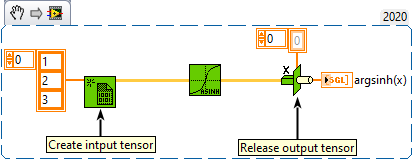Welcome to our Support Center
-
Quick start
-
API
-
-
- Resume
- Array Size
- Index Array
- Replace Subset
- Insert Into Array
- Delete From Array
- Initialize Array
- Buid Array
- Concatenate Array
- Array Subset
- Min & Max
- Reshape Array
- Sort Array
- Reverse 1D Array
- Shuffle Array
- Search In Array
- Split 1D Array
- Split 2D Array
- Rotate 1D Array
- Increment Array Element
- Decrement Array Element
- Interpolate 1D Array
- Threshold 1D Array
- Interleave 1D Array
- Decimate 1D Array
- Transpose Array
- Remove Duplicates From 1D Array
- Show All Articles ( 12 ) Collapse Articles
-
-
- Resume
- Sine
- Cosine
- Tangent
- Secant
- Cosecant
- Cotangent
- Inverse Sine
- Inverse Cosine
- Inverse Tangent
- Inverse Secant
- Inverse Cosecant
- Inverse Cotangent
- Sine & Cosine
- Sinc
- Inverse Tangent (2 Input)
- Show All Articles ( 1 ) Collapse Articles
-
-
- Resume
- Add
- Substract
- Multiply
- Divide
- Quotient & Remainder
- Increment
- Decrement
- Add Array Element
- Multiply Array Element
- Absolute
- Round To Nearest
- Round Toward -Infinity
- Round Toward +Infinity
- Scale By Power Of Two
- Square Root
- Square
- Negate
- Reciprocal
- Sign
- Show All Articles ( 5 ) Collapse Articles
-
-
Updated
Inverse Hyperbolic Sine
Description
Computes the inverse hyperbolic sine of x.
![]()
Input parameters
![]() x : class, n-dimensional tensor.
x : class, n-dimensional tensor.
Output parameters
![]() argsinh(x) : class, the inverse hyperbolic sine of x.
argsinh(x) : class, the inverse hyperbolic sine of x.
Example
All these exemples are snippets PNG, you can drop these Snippet onto the block diagram and get the depicted code added to your VI (Do not forget to install PERRINE library to run it).

Table of Contents
